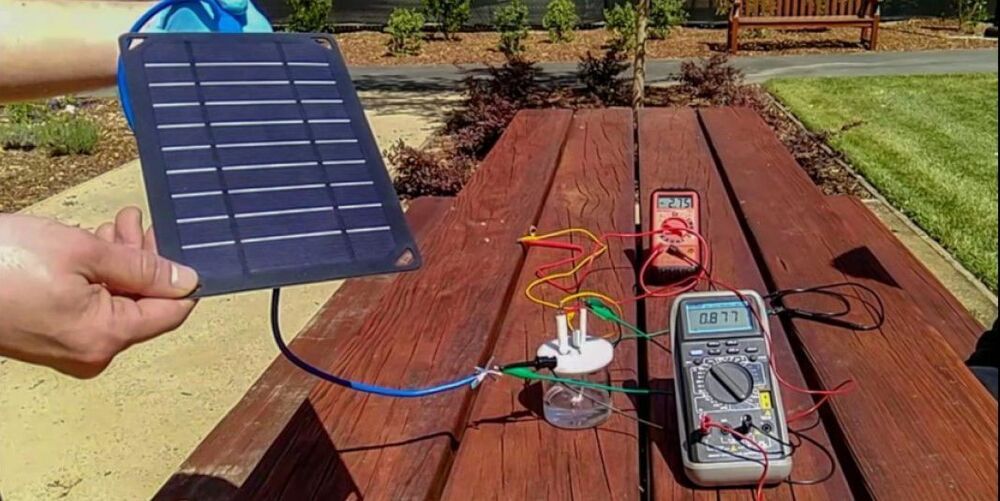Circa 2019
Thanks to Stanford researchers, there might be a new recipe for hydrogen fuel: saltwater, electrodes and solar power. The researchers have developed a proof-of-concept for separating hydrogen and oxygen gas from seawater via electricity. It’s far cheaper than the current methods, which rely on creating hydrogen fuel from purified water.
Breaking up a substance like water to create hydrogen and oxygen is called electrolysis and is a scientific technique centuries old. It was first codified by British scientific legend Michael Faraday, whose two laws of electrolysis from 1834 still guide scientists today. With a power source connecting to two water-based electrodes, scientists can get hydrogen bubbles to come out of an end called an cathode, while oxygen comes out of an end called an anode.
That works fine for fresh water, but saltwater is trickier because of its ability to corrode electrodes with chloride, which would limit a system’s lifespan. The trick for Hongjie Dai, a professor of chemistry at Stanford, and his team was a change in materials.
